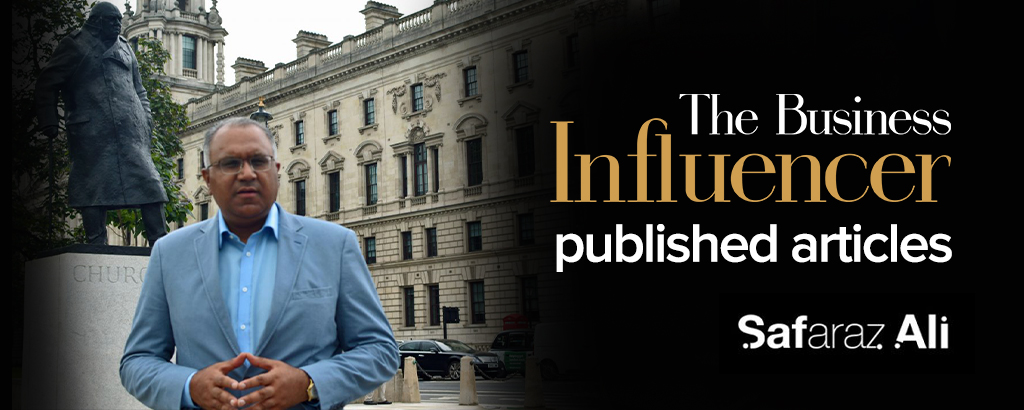
It starts with trust and grows because of trust

The fundamental of any relationship, business or otherwise, is trust. Someone may know you and even admire you, but that isn’t enough for them to work with you or invest in you or your business.
In business, we need our customers and potential customers to trust us; we need our team to trust us; we need our suppliers to trust us. All of these people need to know that we are credible and reliable, otherwise they simply won’t want to invest time and resources into us and our business.
Simply put, without trust, you and your business can’t grow.
How do we create and nurture trust genuinely and sustain it particularly in the context of gaining investment, creating partnerships and joint venture and collaborations?
Building Trust Externally
In order to grow your business, you need to build trust with those outside of your business.
The Trust Equation
When establishing trust externally, considering the Trust Equation by David Maister a former Harvard Business School professor which can help you measure and benchmark where you are and where you wish to get to and this is as below:
Trust = C + R + I/S
The Trust Equation denotes that there are four key components to be considered when establishing trust:
- Credibility – can they trust what you say? Are you credible on the subject?
- Reliability – can they trust you to deliver? If you say you’ll do something, do they trust you to achieve this?
- Intimacy – do they feel safe and secure enough to entrust you with something?
- Self-orientation – where does your focus lie? Are you acting on the best needs of you or your prospects?
To create trust, you need to demonstrate high levels of credibility, reliability and intimacy to your prospects. As the denominator, the higher self-orientation, the lower the trust and therefore self-orientation needs to be low. In order to grow your business, it’s vital to consider how it can benefit others. The more you offer to your prospects and consider their needs, the more likely they are to respond to you and your business.
Consistently living by the trust equation is key to establishing trust.
So, how do you prove this?
You know the key components of trust, but how do you demonstrate that you live by these to a prospect?
Show, don’t tell
It’s one thing to say you will accomplish something, but it’s another thing to actually do it. Consistently live up to your promises and complete tasks when you say you will. You can prove this via client case studies; these are a great way of showing the work your business does and letting the customer form their own opinion.
Practise honest communication
Sometimes, life gets in the way and so there may be times when you are unable to complete a task you promised to. Be upfront and honest with your customers, clients and suppliers; if you can’t achieve something, let them know straight away. The worst thing you can do is try to brush an issue under the rug — it will come to light eventually.
Consider your brand and marketing
How do you brand or market yourself? Take your social media and your website activity for example; do you put focus on you (as a business) or your clients and customers? Do you demonstrate core values that you live by?
Prove you know your customers
Your customers should always be at the forefront of your mind — after all, they are ultimately who will cause your business to grow. Personalise your relationships with them; ensure you know them inside and out; tailor their experience. In doing so, you will create intimacy and, as a result, a stronger relationship.
Building Trust Internally
Building trust within your business is just as imperative as building trust outside of it. With your business growing, that likely means an influx of new employees — but without trust, are they going to perform as well as possible? Are they going to stay with the business on a long term basis?
To build trust internally, it’s important to consider the key ingredients of trust.
Character
- What characteristics are you exhibiting? What is your intent?
- Are you acting in a caring, open and transparent manner?
- Do you have integrity? Are you engaging in honest, authentic and fair communication?
Competence
- Are you proving that you are capable of running a business?
- What skills, knowledge and experience do you have?
- What reputation do you have within the industry?
- Do you achieve the results you promised? Is this backed up by your performance?
By demonstrating these attributes from the onset, you are more likely to build a team centered around mutual trust and respect.
Trust is the foundation of growth and so it’s imperative to consider how you are demonstrating this to those around you. If you want to grow as a person, grow your reputation ultimately to grow your business, the key is to build long term relationships built on mutual trust after all it starts with trust and grows because of trust.
Over the years companies have leveraged on trust to build formidable business brands that continues to stay relevant because of trust.
Trust plays a major role in building consumer loyalty and increasing the brands bottom line as nearly 90% of consumers said they are more likely to buy more, pay more and recommend brands they trust.
The worlds most trusted brands(2021) spanning across different sectors such as technology, Retail, FMCG’s, Entertainment are not only highly rated on functionality but also on emotional and social qualities which ultimately strengthens trust resulting in community impact and employer loyalty.
The Top 5 brands namely Google, PayPal, Microsoft, YouTube and Amazon has consistently captivated their consumers by positioning their brand to reflect both the functional and emotional needs of its consumers thereby building a trustworthy brand. For instance, PayPal’s as an innovative and reliable payment platform is also dedicated to empowering small and minority businesses thereby solidifying its position as a trustworthy brand to its target audience.
While trust is crucial in achieving emotional and social aspects that drive brand reputation, value, relevance, quality and experience are equally critical as it improves engagement that drives usage and ultimately customer retention. This makes the ideal recipe for improved business performance, continuity and loyal consumer relationship.
Brands with high level of trust has the benefit of its trust compounding over time while brands lacking trust face the associated risk of negative sentiments and high levels of skepticism which impacts brand reputation and ultimately brand performance.
For instance, companies with high level of trust that equally responded positively to the Covid-19 pandemic by prioritizing compliance, safety and welfare of its stakeholders such as Amazon, Costco, Walmart, Google gained more trust with consumers thereby driving up consumer engagement, brand loyalty and retention while some brands such as Debenhams, Arcadia group, Bertram books, Mothercare which had been experiencing decline in consumer engagement ultimately didn’t survive the impact of the Covid 19.
Some of the main drivers for trust are both functional and emotional such as good valve for price, personal data protection, high quality, customer service and customer experience. This is reflected in the 8 out of 10 global consumers that say they lost trust in a brand and switched to a competitor majorly as a result of functionality.
Today’s consumers are equally attentive to the ethics of the company they buy from with 66% global consumers interested in the company’s global political and societal views on matters of personal interest.
Historically, brands had focused on solely meeting the functional needs of its consumers but the emotionally needs have been proved to be equally important in building a brand that not only delivers but connects and resonates with its consumers thereby building brand loyalty. Ultimately, trust is no longer a ‘nice to have’ but a ‘must have’ for any brand.
